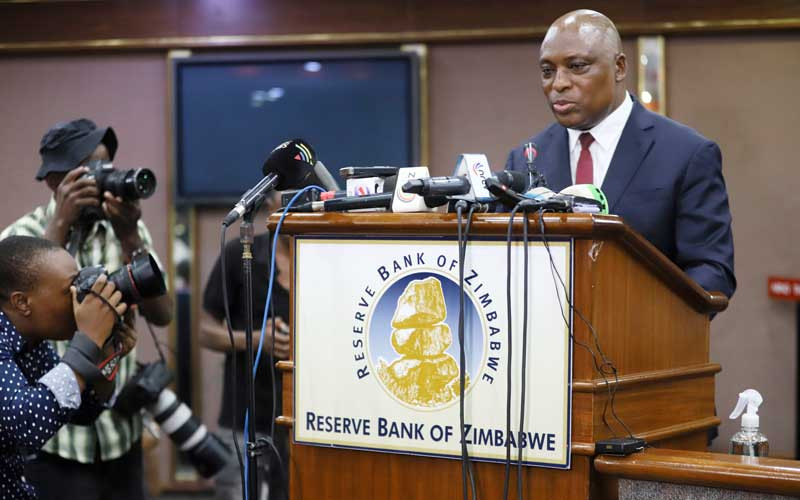
RESERVE Bank of Zimbabwe (RBZ) governor John Mushayavanhu says should Treasury wish to borrow from the bank, a proof of repayment must be shown to avoid quasi-fiscal operations as he steers the central bank to focus on its core business.
For years, government has been accused of using the RBZ to fund operations that are normally covered by Treasury due to the government’s inability to source external lines of credit owing to its debt, estimated at over US$20 billion.
The quasi-fiscal operations have fuelled the growth of money supply up as the central bank-created liquidity to source foreign currency for government, a process that caused the local currency to depreciate.
Speaking at the Zimbabwe Independent’s post monetary policy review breakfast meeting held in Bulawayo last Wednesday, Mushayavanhu said while there was nothing wrong with quasi-fiscal operations, Treasury would have to stay in its lane.
The RBZ boss said Treasury should approach the central bank just like any other depositor.
“You cannot go to your bank manager and say: ‘I demand that you give me the US$100 000 overdraft’. They will just open the door for you and show you out. That is the same story for us,” Mushayavanhu said.
“If there is a genuine need, for example, for Treasury to borrow, let us assume it is 10 days before QPD [quarterly payment dates] and they need to pay wages and we know exactly what they are going to collect. Like any bank and I am coming from the banks, I will look at it as a credit proposal and approve it because there is a source of repayment in sight.”
However, he said he did not expect Treasury to do so as he did not want any quasi-fiscal operations.
- Ndiraya concerned as goals dry up
- Derby of joy and pain
- New arts festival set for Nyanga
- Top CIO boss up for extortion
Keep Reading
Also speaking at the meeting, economic analyst Dumisani Sibanda said the country should steer its cost structure away from US dollars to a softer currency to reduce the need for forex.
“I think the policy makers need to explain this concept. You cannot reference your costs to a hard currency which everyone in the world is looking for. You reference your costs to a soft currency, not a hard one,” Sibanda said.
“The moment you reference your costs to hard currency when everybody (exchange rates) depreciates against that currency, you are following that currency instead of following softer currencies and it makes your exports less viable.”
He added: “So, you will find with the way it is now, say your balance cash flows, like say in the mining sector who are exporting, when the things move, you hear them putting pressure on the RBZ to say ‘please increase this 25% [forex retention on exports] to 30% so that we are more profitable’. It is because they want to fund local costs.
“But, when those local costs are following a hard currency, the exchange rate is moving in tandem. You are making those exports less and less profitable then there is pressure on cash flows.”






